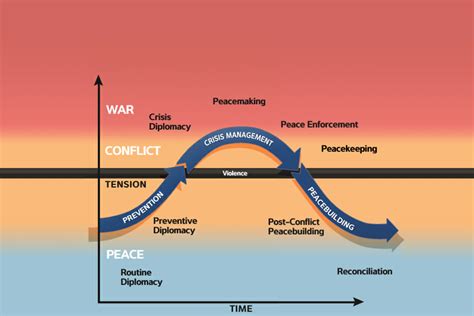War has stained the pages of human history since time immemorial. From ancient skirmishes over land and resources to modern, technologically advanced conflicts, the question persists: can humanity ever extricate itself from the cycle of war? Despite all our advancements, it seems a pervasive facet of human existence. Historians, psychologists, and sociologists alike have long debated whether our propensity for conflict is deeply rooted in our genetic composition, socio-cultural evolution, or simply a product of our leadership structures. Let’s unpack these dimensions to better understand if a future devoid of war is possible.
A significant sentiment that emerges in these discussions is the idea that a small percentage of humans are intrinsically wired to be territorial and greedy. Evolutionary psychology lends weight to this argument by suggesting that such traits might have conferred survival advantages during early human history. Individuals who were more aggressive or territorial were likely better equipped to secure and defend resources, thus ensuring their lineage. This evolutionary backdrop implicates genetics as a formidable barrier to overcoming our predisposition for conflict.
However, it is not just the genetic predisposition of a few that fuels wars; the societal admiration and validation of such traits play an equally crucial role. These so-called charismatic leaders often exploit their territorial and greedy impulses for gain. The masses, finding these traits attractive, support individuals who promise security and prosperity, even if through conflict. Additionally, this public endorsement can create a vicious cycle, perpetuating the very dynamics that lead to leaderships characterized by belligerence.
Adding a layer of complexity is the intricate relationship between education, culture, and war. Cultures across the globe have historically celebrated heroism in war, embedding such valor in their collective memory and cultural ethos. This glorification can trivialize the brutal realities of conflict, making it an honorable pursuit rather than a last resort. As some commentators assert, this is a critical issue that education and a radical shift in cultural values might address. For societies to evolve beyond this phase, it may necessitate a generational effort to reframe conflict and inspire an appreciation for peaceful resolutions.
Another dimension is the mechanics of politics and leadership. Modern democracies frequently face the challenge of electing leaders who exploit populist rhetoric, emphasizing threats and promising aggressive policies. This phenomenon often stems from a flawed electoral process where the most attention-grabbing and extreme elements rise to prominence. Providing more visibility and support for alternative, peace-oriented candidates could shift this dynamic. A diverse array of voices and platforms offering collaborative solutions rather than martial ones can increase the chances of electing leaders devoted to peace.
In practical terms, advancements in technology, particularly in the realm of warfare, further complicate the scenario. Innovations that make wars less bloody or distant, such as drones and cyber warfare, may reduce visible consequences, thereby lowering the deterrent against engaging in conflict. On the flip side, an efficient use of technology to foster transparent communication and highlight the detrimental impacts of conflict can empower the global populace to demand peace-oriented policies. For instance, leveraging global social media platforms to raise awareness about the realities of war can instigate a more significant push against militarism.
When considering the history of large-scale conflicts, the deterrent effect of mutually assured destruction (MAD) during the nuclear era provides a paradoxical form of peace. However, this precarious balance relies heavily on rational actors who value their own survival. In the long term, the reliance on such unstable deterrence mechanisms might not be sustainable. Therefore, frameworks like the Bretton Woods Agreement, which prioritize economic cooperation over military conquest, offer an alternative approach. This system advanced the notion of trading resources rather than waging war over them. Nonetheless, effective implementation requires global consensus, something that has proven elusive.
Summarizing, the inherent complexities within human nature, leadership structures, cultural patterns, and technological advancements create substantial barriers to achieving a world without war. However, recognizing these factors is the first step towards change. Educational reforms, promotion of peaceful leadership, increased awareness through technological platforms, and international economic cooperation are crucial steps toward this goal. With dedicated effort and collective will, it might be possible to inch closer to a more peaceful existence. Achieving this will not be easy, but it is a worthwhile pursuit for the future of humanity.


Leave a Reply